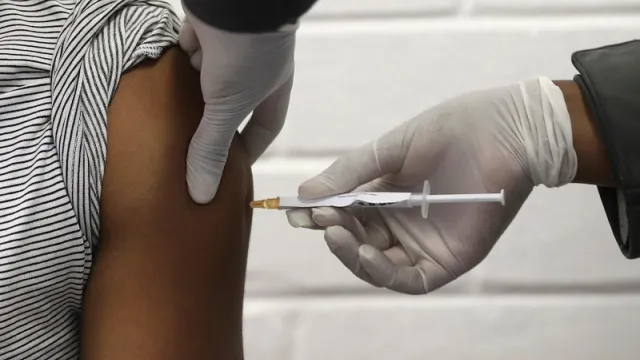Moderna to build vaccine plant in Africa

Moderna to build vaccine plant in Africa
Moderna plans to build a messenger RNA therapeutics and vaccine manufacturing centre in Africa in a yet to be determined country.
The plant is expected to produce up to 500 million vaccine doses annually, including for COVID-19 and other diseases.
This is the first announcement by a COVID-19 vaccine producer to fully manufacture mRNA vaccine in Africa, marking a victory for those pushing to increase local manufacturing of both COVID-19 vaccines and mRNA technologies more broadly on the continent.
So far statistics show only about 4 per cent of Africa’s population is fully vaccinated against COVID-19, a shortcoming that has largely been blamed on nations’ reliance on doses from overseas.
In July, Pfizer, and BioMTech signed the first deal for the production of mRNA COVID-19 vaccines on the continent, with a South African company to handle manufacturing.
But that deal was only for the “fill and finish” process, which involves putting the vaccine substance received from facilities elsewhere into vials and shipping the doses.
Read also: Why you may need to take Covid shot every year
This is an arrangement that Medecins Sans Frontieres says does little to help Africa “achieve vaccine independence.”
Last week, Moderna said its new manufacturing plant would produce the vaccine substance itself and plans to invest $500 million in the undertaking.
“On behalf of our growing team, partners and shareholders, we are determined to extend Moderna’s societal impact through the investment in a state-of-the-art mRNA manufacturing facility in Africa. While we are still working to increase capacity in our current network to deliver vaccines for the ongoing pandemic in 2022, we believe it is important to invest in the future,” said Moderna CEO Stéphane Bancel.
The latest move comes amid growing calls for pharmaceutical companies to share the technical know-how for producing COVID-19 vaccines to help increase supplies for low- and middle-income countries as well as pressure for more nations to support an intellectual property waiver for COVID-19 vaccines, treatments, tests, and other health tools.
In June, the World Health Organization announced the first “technology transfer hub” for mRNA COVID-19 vaccines in South Africa, with plans to teach African manufacturers how to make vaccines.
According to WHO, while producing mRNA vaccines is faster, it involves a “far more complex process” compared with other types of vaccines, such as those for yellow fever.



